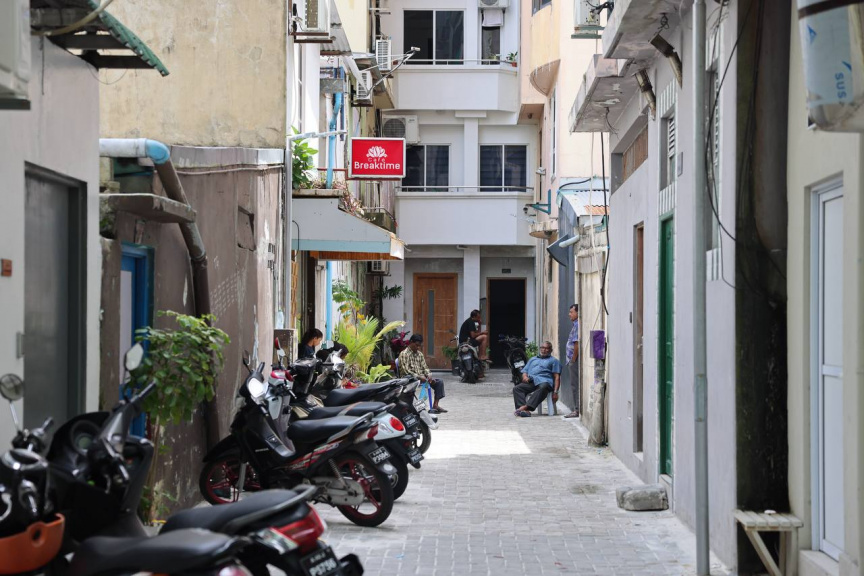
People wait outside their homes amid a power outage in Male' City on August 9, 2025. (Sun Photo/Maaniu Mohamed)
Mayor Adam Azim announced on Wednesday that efforts will be made to revive plants used in traditional medicine across parks, cemeteries, and mosques in the city. The initiative aims to ensure a fresh and readily available supply of these essential herbs within Malé city.
The decision comes after a meeting between the Malé City Council and the Dhivehi Beysveringe Jamiyya, an organisation dedicated to the revival and preservation of traditional Maldivian herbal medicine. The organization highlighted the challenges faced by herbal practitioners and doctors in obtaining fresh herbs from the Malé area, expressing significant concern over the scarcity.

During the meeting, Mayor Azim assured the Dhivehi Beysveringe Jamiyya that the council would actively facilitate the preservation and promotion of herbal traditional medicine. He specifically committed to planting medicinal trees in the city's parks, cemeteries, and mosques to ensure a consistent provision of necessary herbs.
The Mayor also stated his intention to submit a proposal to the council to increase the number of medicinal plants among the trees used for urban decoration.
Maldivian herbal medicine has long been a trusted and effective practice within the community. The Dhivehi Beysveringe Jamiyya was established on November 8, 1980, with the mission of promoting this vital aspect of Maldivian heritage.
The number of clinics offering traditional medicine in the Malé area continues to grow, attracting a significant number of individuals seeking their services.